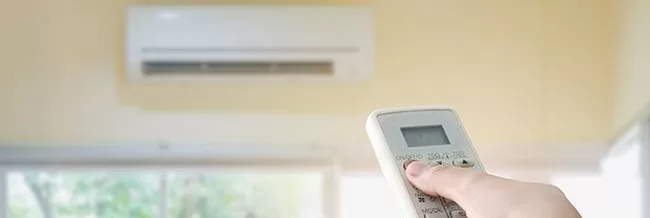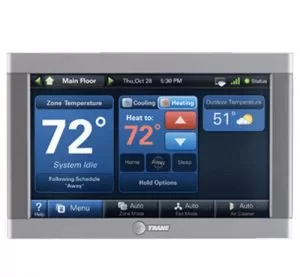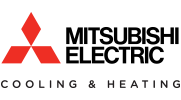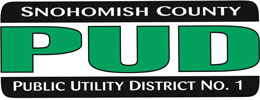Summer is just around the corner, which means many of us will soon be relying on our air conditioning systems to keep our homes cool and comfortable.
But what happens when there’s a power outage? Should you unplug your air conditioning to protect it from potential damage?
Lucky for you, we at BelRed, your trusted provider of air conditioning services in Seattle, WA, have got your back!
In this article, we’ll walk you through the ins and outs of dealing with power outages and your air conditioning system.
Why Do Power Outages Matter?
Before we dive into the main topic, let’s take a moment to understand why power outages matter when it comes to your air conditioning system. Power outages can cause a sudden loss of electricity, which can create a surge when the power is restored.
This surge can potentially damage your air conditioner’s sensitive electrical components, leading to costly repairs or even replacement. That’s why it’s essential to know what to do with your AC during a power outage.
The Big Question: To Unplug or Not to Unplug Your Air Conditioner?
Now, let’s get to the heart of the matter: should you unplug your air conditioner during a power outage? The short answer is yes, but there’s more to it than just yanking the plug out of the wall.
Here’s a step-by-step guide to protecting your air conditioning system during power outages:
Step 1: Switch off your air conditioner.
The first step to take when you notice a power outage is to turn off your air conditioning system. This will help prevent the unit from trying to restart when the power comes back on, which could cause damage due to a sudden surge of electricity. Use your thermostat or the system’s main switch to turn it off.
Step 2: Unplug the unit.
After switching off your air conditioner, unplug it from the wall. This is especially important if your air conditioner doesn’t have a built-in surge protector. Unplugging the unit will protect it from any electrical surges when the power is restored.
Step 3: Invest in a surge protector.
If you don’t already have one, consider investing in a surge protector for your air conditioning system. These devices protect your AC by absorbing excess voltage during electrical surges. They’re relatively inexpensive and can save you a lot of money in the long run by preventing damage to your air conditioner.
Step 4: Wait for the power to stabilize.
After a power outage, it’s best to wait for the electricity to stabilize before turning your air conditioner back on. This will give your local utility company time to fix any issues that may cause additional surges.
Wait at least 30 minutes after power is restored before plugging your AC back in and turning it on.
Step 5: Check for any issues
Once you’ve plugged your air conditioner back in and turned it on, keep an eye out for any unusual noises, smells, or poor performance. If anything seems off about your unit, turn it off and call a professional technician to inspect the system.
Understanding Your Air Conditioner’s Energy Efficiency and Surge Protection Features
Many modern air conditioning systems come equipped with energy efficiency and surge protection features that can help protect your unit during power outages. Here’s what you need to know:
Energy Efficiency Ratings
Look for air conditioners with high Seasonal Energy Efficiency Ratio (SEER) and Energy Efficiency Ratio (EER) ratings. These units are designed to use less energy and can be more resilient during power fluctuations.
Built-in Surge Protection
Some air conditioning systems come with built-in surge protection features. While it’s still a good idea to unplug your AC during a power outage, these built-in protections can provide an additional layer of defense against electrical surges.
Smart Thermostats
A smart thermostat can help protect your air conditioner by automatically turning off the system when a power outage is detected. This can help prevent damage from electrical surges when the power is restored.
By understanding your air conditioner’s energy efficiency and surge protection features, you can choose a system that’s better equipped to handle power outages and save money on your energy bills.
How Do I Choose The Right Surge Protector For My Air Conditioner?
When selecting a surge protector for your air conditioner, consider the following factors:
Joule Rating
The joule rating indicates the amount of energy the surge protector can absorb before it fails. A higher joule rating means better protection for your air conditioner. Look for a surge protector with at least 1,000 joules for adequate protection.
Clamping Voltage
The clamping voltage is the level at which the surge protector starts to divert excess voltage away from your air conditioner. A lower clamping voltage provides better protection. Look for a surge protector with a clamping voltage of 330 volts or lower.
Response Time
The response time indicates how quickly the surge protector can react to a voltage surge. A faster response time means better protection. Look for a surge protector with a response time of 1 nanosecond or less.
Compatibility
Ensure the surge protector is compatible with your air conditioner’s plug type and voltage requirements. Check the surge protector’s specifications and compare them to your air conditioner’s user manual or consult a professional technician if you’re unsure.
Warranty
A surge protector with a warranty provides added peace of mind, as it indicates the manufacturer’s confidence in their product. Look for a surge protector with a warranty that covers both the device and connected equipment.
What if My Air Conditioner is Damaged by a Power Surge?
Despite our best efforts to protect our air conditioning systems, sometimes power surges can still cause damage. If you suspect that your AC has been damaged during a power outage, don’t worry!
Our team of expert technicians at BelRed is here to help. We specialize in diagnosing and repairing air conditioning issues, so you can trust us to get your system back up and running in no time.
Here are some signs that your air conditioner may have been damaged by a power surge:
- The unit won’t turn on or struggles to start
- The system is making unusual noises or emitting strange smells
- The air conditioner is not cooling effectively or is blowing warm air
- The unit is tripping circuit breakers or fuses frequently
If you notice any of these symptoms, it’s crucial to call a professional technician right away. Attempting to fix the issue yourself could cause further damage or even pose a safety risk.

FAQs About Air Conditioners and Power Outages: Your Questions Answered
Power outages can be a bit of a headache, especially when it comes to your air conditioning system.
To help you navigate this tricky situation, we’ve put together a list of frequently asked questions about air conditioners and power outages, along with some helpful answers from our expert team at BelRed.
FAQ 1. How long should I wait before turning my air conditioner back on after a power outage?
We recommend waiting at least 30 minutes after the power is restored before turning your air conditioner back on. This allows time for the electricity to stabilize and reduces the risk of damage from electrical surges.
FAQ 2. Can a power outage damage my air conditioner?
Yes, power outages can potentially damage your air conditioner, particularly if the power comes back on suddenly and causes an electrical surge.
This surge can damage sensitive electrical components within your AC unit.
To protect your system, turn it off during a power outage and unplug it if it doesn’t have a built-in surge protector.
FAQ 3. What should I do if my air conditioner isn’t working after a power outage?
If your air conditioner isn’t working after a power outage, first make sure you’ve waited at least 30 minutes after the power was restored before trying to turn it on.
If it still doesn’t work, unplug the unit and check for any blown fuses or tripped circuit breakers.
For more severe cases, it’s best to call a professional technician to inspect and diagnose the problem.
FAQ 4. Is it necessary to invest in a surge protector for my air conditioner?
While it’s not mandatory, investing in a surge protector is a smart decision for protecting your air conditioner from potential damage during power outages.
Surge protectors absorb excess voltage during electrical surges, preventing damage to your AC’s electrical components.
They’re relatively inexpensive and can save you money on repairs or replacement in the long run.
FAQ 5. How can I keep my home cool during a power outage if I can’t use my air conditioner?
There are several ways to stay cool without relying on your air conditioner during a power outage.
Some tips include blocking out the sun by closing curtains and blinds, using fans to create a cross-breeze and improve air circulation, staying hydrated, and cooking smart by avoiding heat-generating appliances like ovens and stoves.
Stay Cool and Worry-Free with BelRed
When it comes to your air conditioning system, it’s always better to be safe than sorry. By unplugging your AC during power outages and investing in preventive maintenance, you can protect your investment and enjoy a comfortable home all summer long.
If you ever need assistance with your air conditioner, whether it’s for maintenance, repairs, or installation, you can count on BelRed to provide top-notch air conditioning services in Seattle, WA.
Professional Heating and Cooling Services
Ready to enjoy the ultimate comfort and peace of mind that comes with professional heating and cooling services? Look no further than BelRed!
Our team of experienced and dedicated technicians is here to help you with all your air cooling and heating needs, from routine maintenance to emergency repairs and new installations.
Experience the BelRed difference for yourself and join the countless satisfied customers who trust us to keep their homes comfortable all year round.
Give us a call at (855) 345-6161 or visit our website to schedule an appointment or learn more about our top-notch heating and cooling services.
Your family’s comfort is our top priority!







